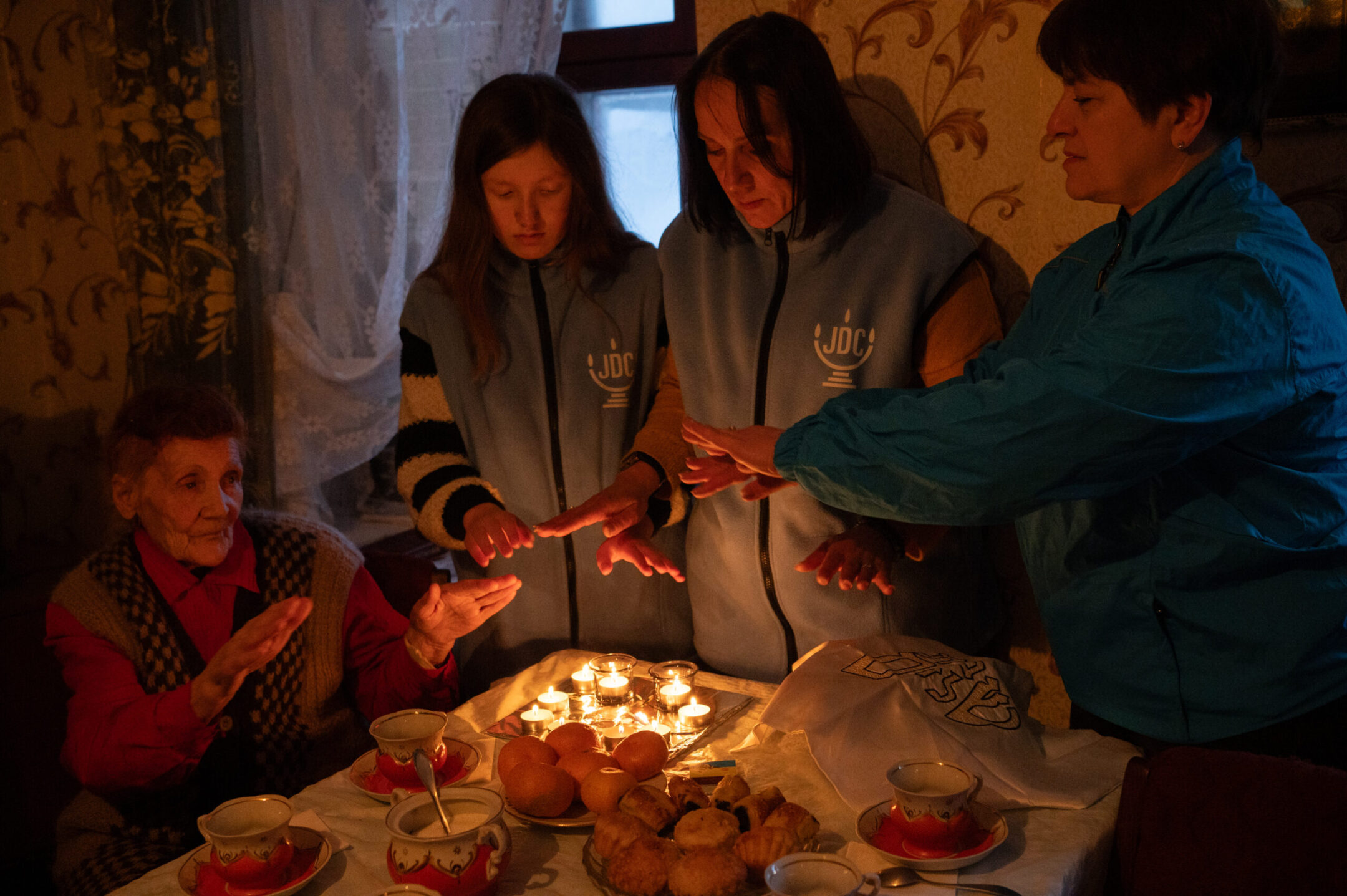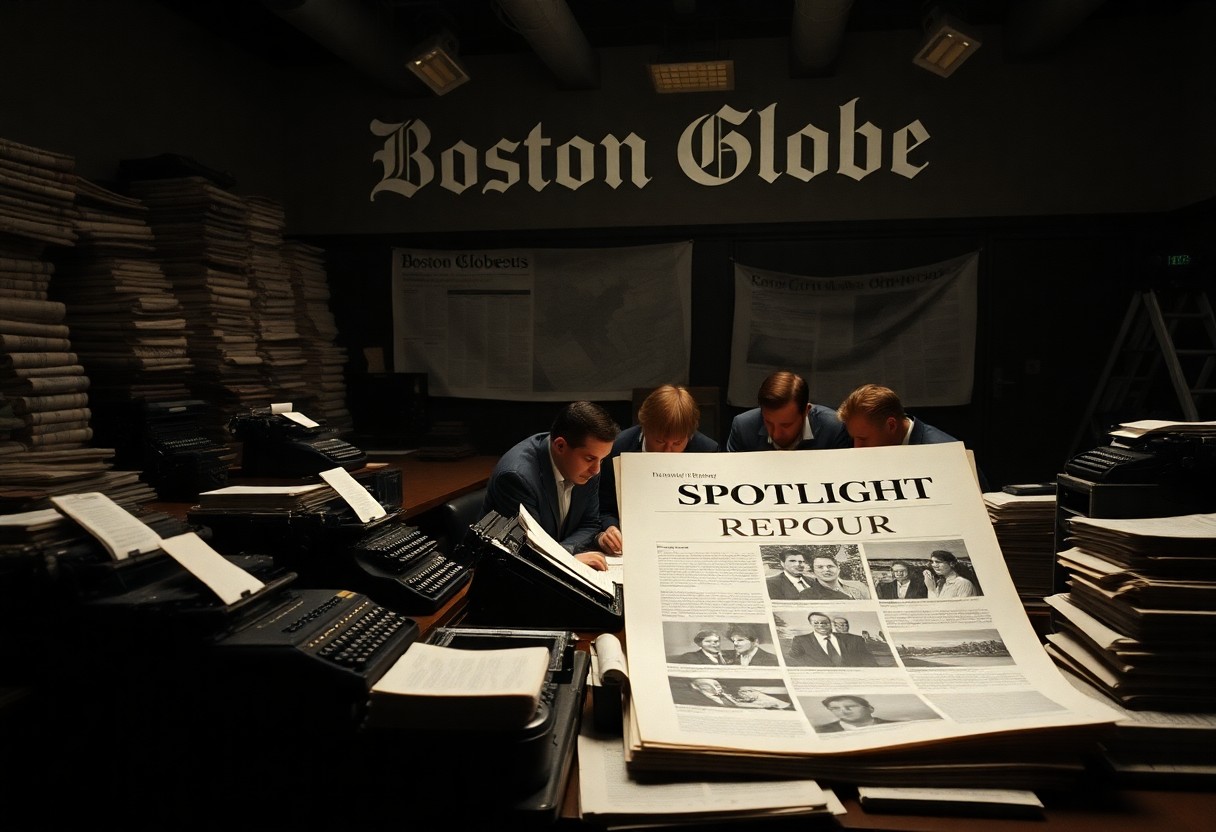(JTA) — As we mark the grim second anniversary of the Ukraine conflict this Shabbat, I’m reminded of a haunting melody I heard in the city of Poltava last month.
I was standing before Sonia Bunina, a plucky 17-year-old, when she opened her mouth to sing when an air raid siren rang out.
I flinched. Not Sonia — she didn’t miss a beat.
“Kol haolam kulo gesher t’zar meod, veha’ikar lo lifached k’lal,” she belted out before seeking shelter. “The whole world is a very narrow bridge, and the most important thing is to have no fear at all.”
Sonia, like so many Jews I know in Ukraine, is many things — determined, grieving, focused — but she’s certainly not cowering.
As she sang those words by Rebbe Nachman of Breslov — the Ukrainian Jewish sage whose followers continue to come by the tens of thousands to his grave in Uman annually — she embodied the prayer’s indomitable spirit.
Sonia and I met outside Poltava’s Hesed, part of the network of Jewish humanitarian hubs founded by my organization — the American Jewish Joint Distribution Committee, or JDC — more than three decades ago. Today they’re a lifeline to tens of thousands of Jews facing loss and strife. Since she was a toddler, Sonia has been attending activities at Hesed — her mother coordinates cultural programs for the elderly, and she connects teen volunteers like herself with isolated seniors, a critical source of comfort these last two years.
These days, traveling to Ukraine feels like a pilgrimage — there’s a pull in my soul to visit family near Lviv, to bear witness to Ukrainian Jewish resilience, and to be inspired by the clarity of purpose that is so palpable there. Since my first trip in 2011, I’ve been eight times. Last year, I wrote about how a year of crisis had transformed the ordinary into the sacred in Ukraine. Now, visiting feels even more essential with the worsening humanitarian situation.
Ukrainian Jews aren’t blasé about these challenges — far from it. Just take the delicate ballet of emotions on their faces when checking their phones during an air alert — contacting loved ones, scrolling through photos of devastation, and analyzing Telegram chats speculating on a given rocket’s make and trajectory.
But life goes on — there’s work to do — and though they’ve lost so much, they refuse to give any more away.
Showing up for each other, whatever it takes, is now baked into their very essence as Jews, and in Ukraine, there are tens of thousands to serve — hungry old women and displaced young families, disabled Holocaust survivors and stunned middle-aged professionals, shocked to now need help when they were once donors and volunteers.
They act fearlessly to ensure their communities make it through this crisis, body and soul intact. Can we expect anything less than boundless creativity from the people who birthed Sholem Aleichem and the Baal Shem Tov?
“These bombings, all these things that are killing people, destroying houses, leaving children homeless … it’s very scary,” Galina Limarenko, an 82-year-old retired nurse, told me in her small bedroom in Berezivka, taking note of the warm blanket, firewood, and other winter supplies my colleagues provided. “Thank God for the Jewish community, which never gives up and always shares even their very last piece of bread.”
Teen Sonia Bunina, right, works with elderly Jews in Poltava, Ukraine, teaching them how to use special smartphones designed for seniors distributed by the American Jewish Joint Distribution Committee as part of its relief effort. (Arik Shraga)
I saw that irrepressible spirit again at our Beit Dan JCC in battered Kharkiv — a shapeshifting wellspring of strength just a few dozen kilometers from the eastern border. Shortly after Feb. 24, 2022, the center became a staging ground for truckloads of emergency aid — part of the 800 tons of humanitarian assistance we’ve delivered so far.
A few blocks from missile strikes, it now hosts children’s camps and soulful Shabbat services and operates a “kids hub,” offering academic enrichment to children who haven’t had in-person school for years — robbed of normal childhood by the pandemic and now the ongoing crisis.
And amidst blizzards and blackouts, Beit Dan has also become a “warm hub,” a safe place for beleaguered Jewish Kharkivites to charge their devices and obtain a hot drink and warm meal.
“If you share in our pain, and provide support where it’s needed, I’m forever grateful,” said Nika Simonova, Beit Dan’s program director. “The ability to remain human is the main thing. Done right, I believe that can save the world.”
That’s why we at JDC, aided by a coalition of partners including the Jewish Federations, Claims Conference, and International Fellowship of Christians and Jews, deployed a historic response to this conflict and remain committed to the Jewish future here.
We’re focused on ongoing humanitarian support for more than 41,000 Ukrainian Jews, expanding trauma relief, closing children’s educational gaps, and getting unemployed Jewish community members, among millions of Ukrainians plunged into poverty, back to work.

Tamara Vasilenko (far left) — an elderly Jew in Sumy, Ukraine — celebrates Shabbat in her home with volunteers from the American Jewish Joint Distribution Committee. (Arik Shraga)
There is no doubt that the Jewish world is now responding to crises on multiple fronts, including this one, but we have been here so many times before. We must draw strength from our history and from the sure knowledge that this is what we’re built for. Our compassion and commitment, when leveraged with that timeless sense of mutual Jewish responsibility, means we can tackle the challenges we face — and come out on the other side even stronger.
As I walked through Lviv on my last day in Ukraine, I asked my cousin Anna Saprun, a 25-year-old business analyst, how this period has changed her.
“I hate what’s brought me here, but I love who I’ve become,” she said with a fierce and feisty smile. “Nothing scares me anymore. I feel powerful.”
Two years after the conflict began, Ukraine’s Jews are inspired anew each day, resolute in the sure knowledge that they know exactly who they’re working for — each other.

is a former journalist and the JDC’s senior video and digital content producer.
The views and opinions expressed in this article are those of the author and do not necessarily reflect the views of JTA or its parent company, 70 Faces Media.











